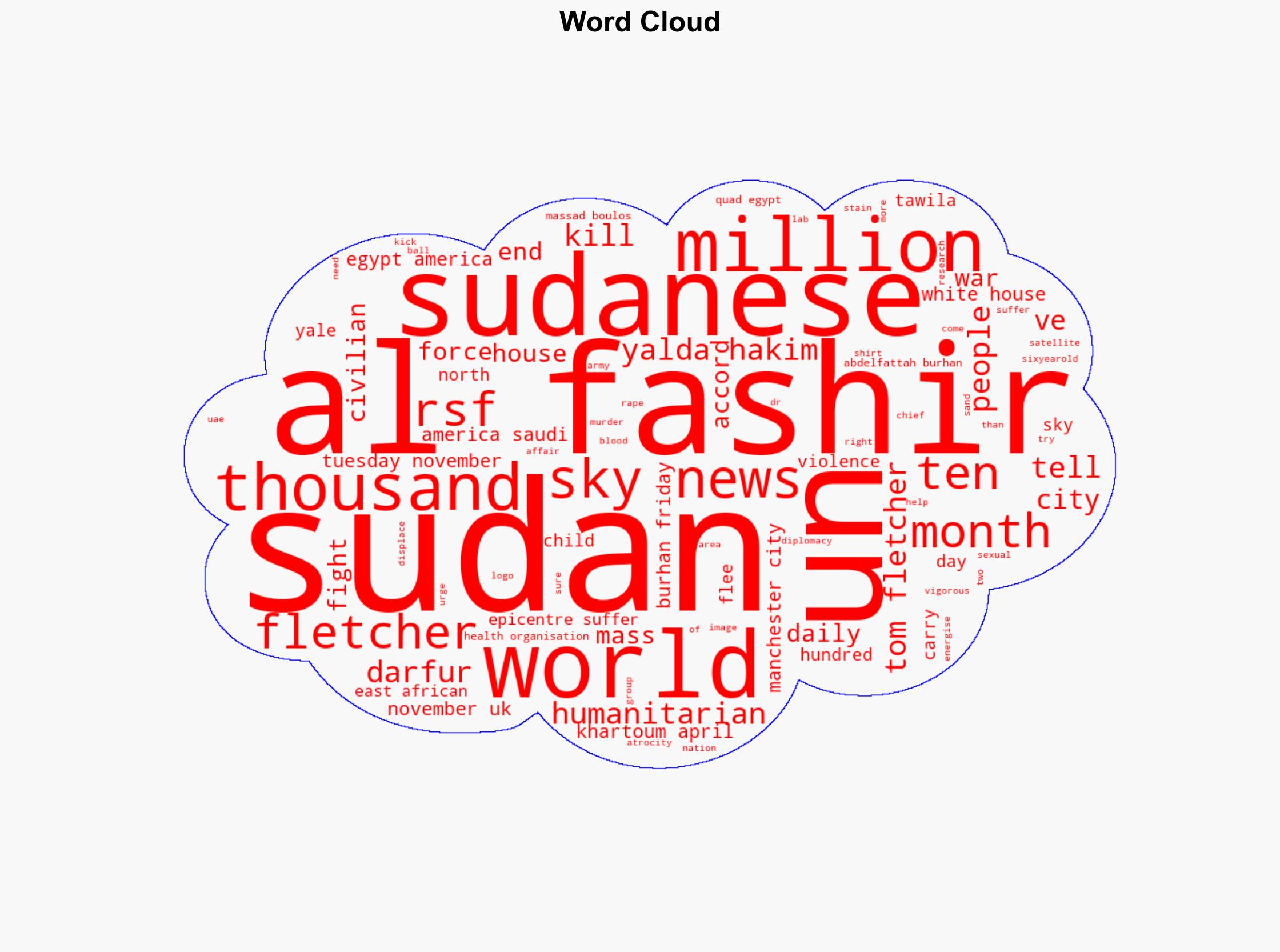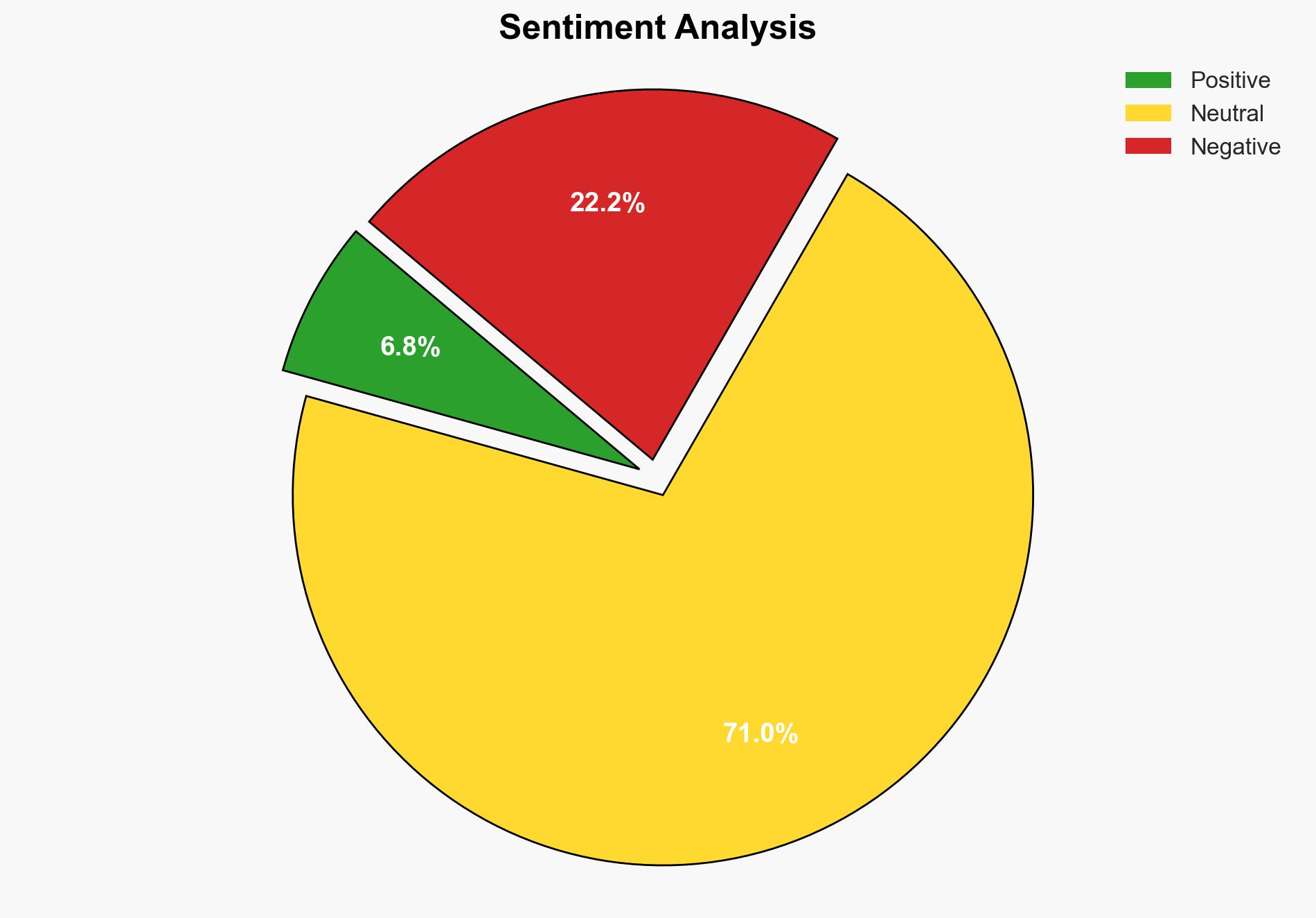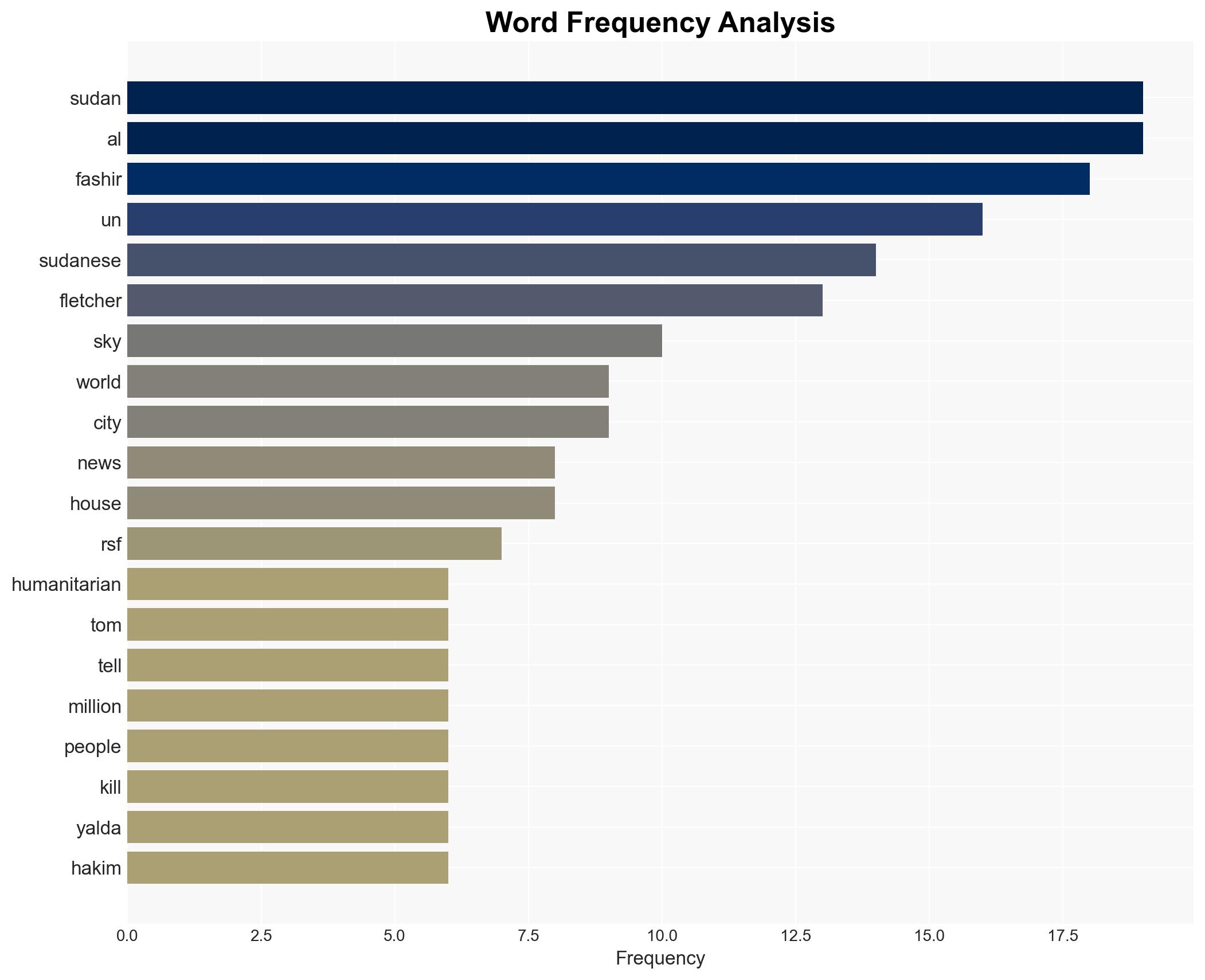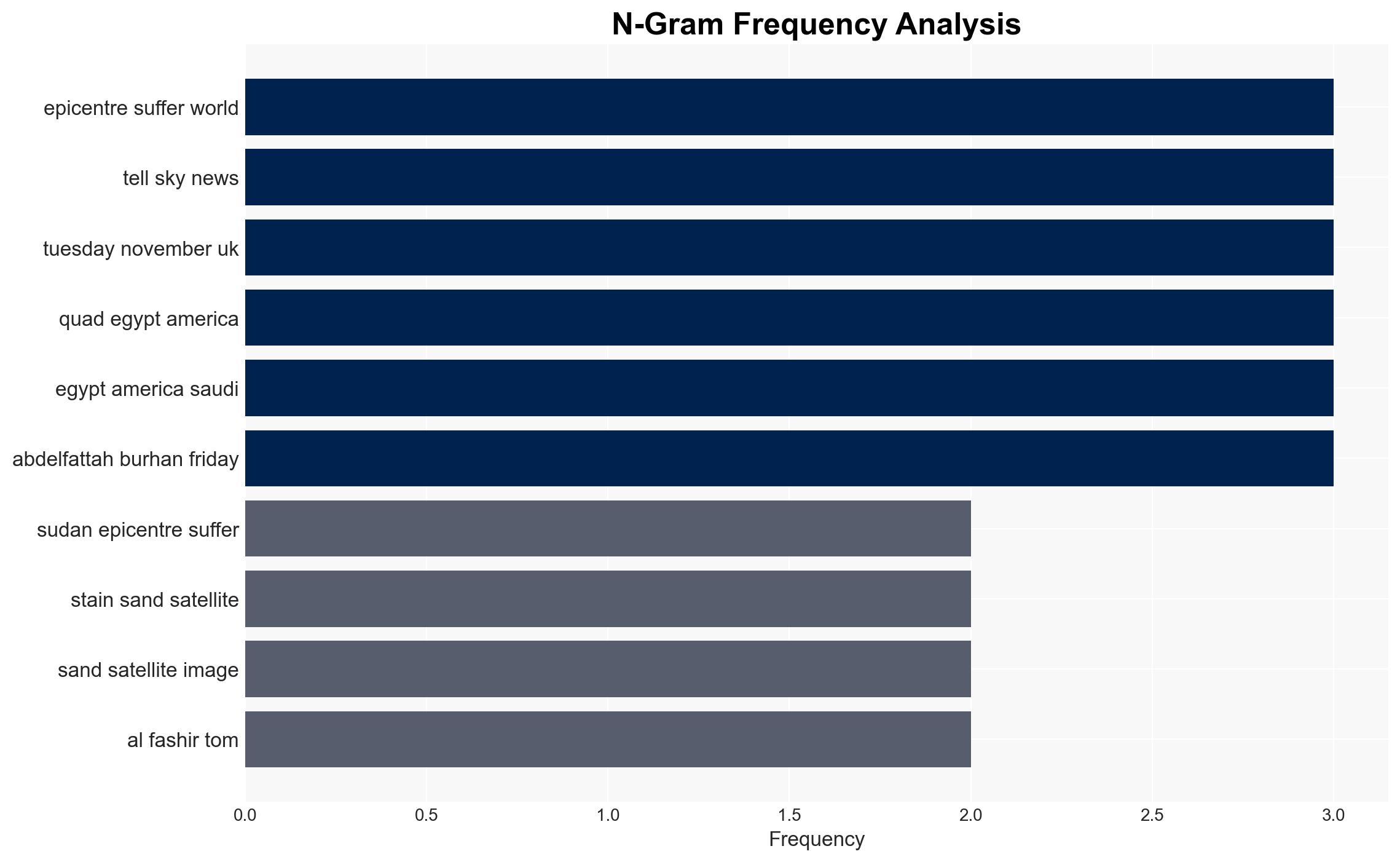War-torn Sudan ‘epicentre of suffering in the world’ UN humanitarian chief tells Sky News – Sky.com
Published on: 2025-11-18
AI-powered OSINT brief from verified open sources. Automated NLP signal extraction with human verification. See our Methodology and Why WorldWideWatchers.
Intelligence Report:
1. BLUF (Bottom Line Up Front)
The most supported hypothesis is that the humanitarian crisis in Sudan, driven by ongoing conflict between the Sudanese Army and the Rapid Support Forces (RSF), will continue to deteriorate without significant international intervention. Confidence Level: Moderate. Recommended action includes increased diplomatic engagement and humanitarian aid to alleviate suffering and prevent further escalation.
2. Competing Hypotheses
Hypothesis 1: The conflict in Sudan will persist, exacerbating the humanitarian crisis, due to entrenched political and military interests, and lack of effective international intervention.
Hypothesis 2: A breakthrough in diplomatic negotiations could lead to a ceasefire and improvement in the humanitarian situation, contingent on sustained international pressure and engagement.
The evidence suggests Hypothesis 1 is more likely due to the ongoing violence, historical challenges in achieving lasting peace, and current diplomatic efforts lacking momentum.
3. Key Assumptions and Red Flags
Assumptions: The Sudanese government and RSF are primarily motivated by power retention rather than humanitarian concerns. International actors have limited influence without unified action.
Red Flags: Reports of mass killings and use of sexual violence as a weapon indicate potential war crimes, which could complicate peace efforts. The lack of reliable data on casualties and displacement suggests possible underreporting or manipulation of information.
4. Implications and Strategic Risks
The ongoing conflict poses significant risks, including regional destabilization, increased refugee flows, and potential for extremist groups to exploit the chaos. Economic impacts are likely as the conflict disrupts trade and investment, while misinformation campaigns could further polarize internal and external stakeholders.
5. Recommendations and Outlook
- Increase diplomatic efforts through multilateral forums, leveraging regional actors like Egypt and the African Union to mediate.
- Enhance humanitarian aid delivery, ensuring safe corridors for aid workers and supplies.
- Monitor for signs of genocide and prepare contingency plans for international intervention if necessary.
- Best-case scenario: Successful diplomatic intervention leads to a ceasefire and gradual stabilization.
- Worst-case scenario: Escalation of violence results in widespread atrocities and regional spillover.
- Most-likely scenario: Continued conflict with intermittent ceasefires, leading to prolonged humanitarian suffering.
6. Key Individuals and Entities
Tom Fletcher (UN Undersecretary-General for Humanitarian Affairs), General Abdel Fattah Burhan (Sudanese Military Leader), RSF (Rapid Support Forces).
7. Thematic Tags
Structured Analytic Techniques Applied
- Cognitive Bias Stress Test: Expose and correct potential biases in assessments through red-teaming and structured challenge.
- Bayesian Scenario Modeling: Use probabilistic forecasting for conflict trajectories or escalation likelihood.
- Network Influence Mapping: Map relationships between state and non-state actors for impact estimation.
Explore more:
National Security Threats Briefs ·
Daily Summary ·
Support us
·





